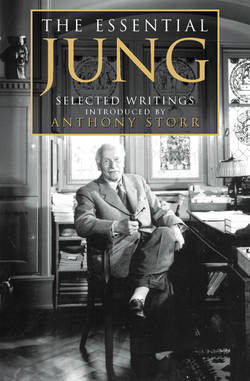Читать книгу The Essential Jung: Selected Writings - Anthony Storr - Страница 15
Part 2. Jung’s Involvement with Freud and His Divergence from Freud’s Theories
ОглавлениеDuring the years 1907–13, Jung was closely associated with Freud, and deeply influenced by him. The story of the rise and fall of their relationship can be traced and studied in The Freud/Jung Letters. But, although Jung always acknowledged his debt to Freud, and paid tribute to his originality, he was never a whole-hearted “Freudian.” For example, in his introduction to The Psychology of Dementia Praecox, dated July 1906, Jung writes:
Fairness to Freud, however, does not imply, as many fear, unqualified submission to a dogma; one can very well maintain an independent judgment. If I, for instance, acknowledge the complex mechanisms of dreams and hysteria, this does not mean that I attribute to the infantile sexual trauma the exclusive importance that Freud apparently does. Still less does it mean that I place sexuality so predominantly in the foreground, or that I grant it the psychological universality which Freud, it seems, postulates in view of the admittedly enormous role which sexuality plays in the psyche. As for Freud’s therapy, it is at best but one of several possible methods, and perhaps does not always offer in practice what one expects from it in theory. [CW 3, Foreword, p. 4]
And, in a letter to Freud dated 5 October 1906, Jung wrote:
What I can appreciate, and what has helped us here in our psychopathological work, are your psychological views, whereas I am still pretty far from understanding the therapy and the genesis of hysteria because our material on hysteria is rather meagre. That is to say your therapy seems to me to depend not merely on the affects released by abreaction but also on certain personal rapports, and it seems to me that though the genesis of hysteria is predominantly, it is not exclusively sexual. I take the same view of your sexual theory. [The Freud/Jung Letters, pp. 4–5]
Freud originally supposed that hysteria was caused by trauma, and that the trauma was both literal and sexual. By the end of 1897, however, Freud realized that the stories which his hysterical patients told him of incestuous seduction were fantasies rather than actual occurrences. Freud then postulated that the cause of neurosis was the “fixation” of the patient at an early stage of emotional development, but continued to assume that the reason for this fixation was to be found in the events of the patient’s early childhood without reference to the present. Jung took a different view.
